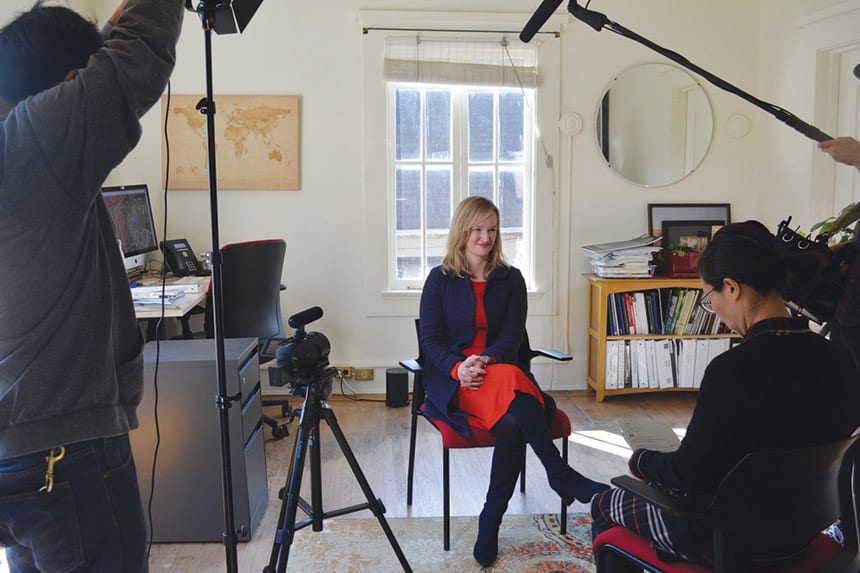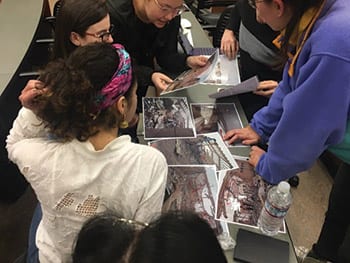
In just 3½ years, Berkeley Law’s Human Rights Center Investigations Lab has blazed a trail for finding and presenting publicly available evidence of international atrocities. In a new book co-edited by HRC Executive Director Alexa Koenig ’13, those tactics are going global.
Published in February, Digital Witness: Using Open Source Information for Human Rights Investigation, Documentation, and Accountability sold out its first print run almost instantly—hitting the top spot in Amazon’s criminal evidence category.

As part of the book’s launch in the United Kingdom, Koenig and fellow editors Sam Dubberley (Amnesty International) and Daragh Murray (University of Essex Human Rights Center) appeared before Parliament.
In 2016, they established the Digital Verification Corps, a group of university students from around the world trained to use digital methods to investigate human rights abuses. HRC’s lab was the first member of the corps, which now has six chapters on four continents and won a Times Higher Education Award for international collaboration last fall.
Digital Witness serves as a valuable handbook for using open-source material for investigations (such as videos of rights violations, satellite images of environmental degradation, and eyewitness accounts disseminated on social media) to advance human rights.
“The facts we unearth are often heavily and heatedly contested by those in positions of power, who may have abused their power in committing those atrocities in the first place and may not want the truth to come to light,” Koenig says of war crimes and other abuses. “We hope that by helping to empower students, activists, researchers, and others to use these skills, we can help right that imbalance.”
